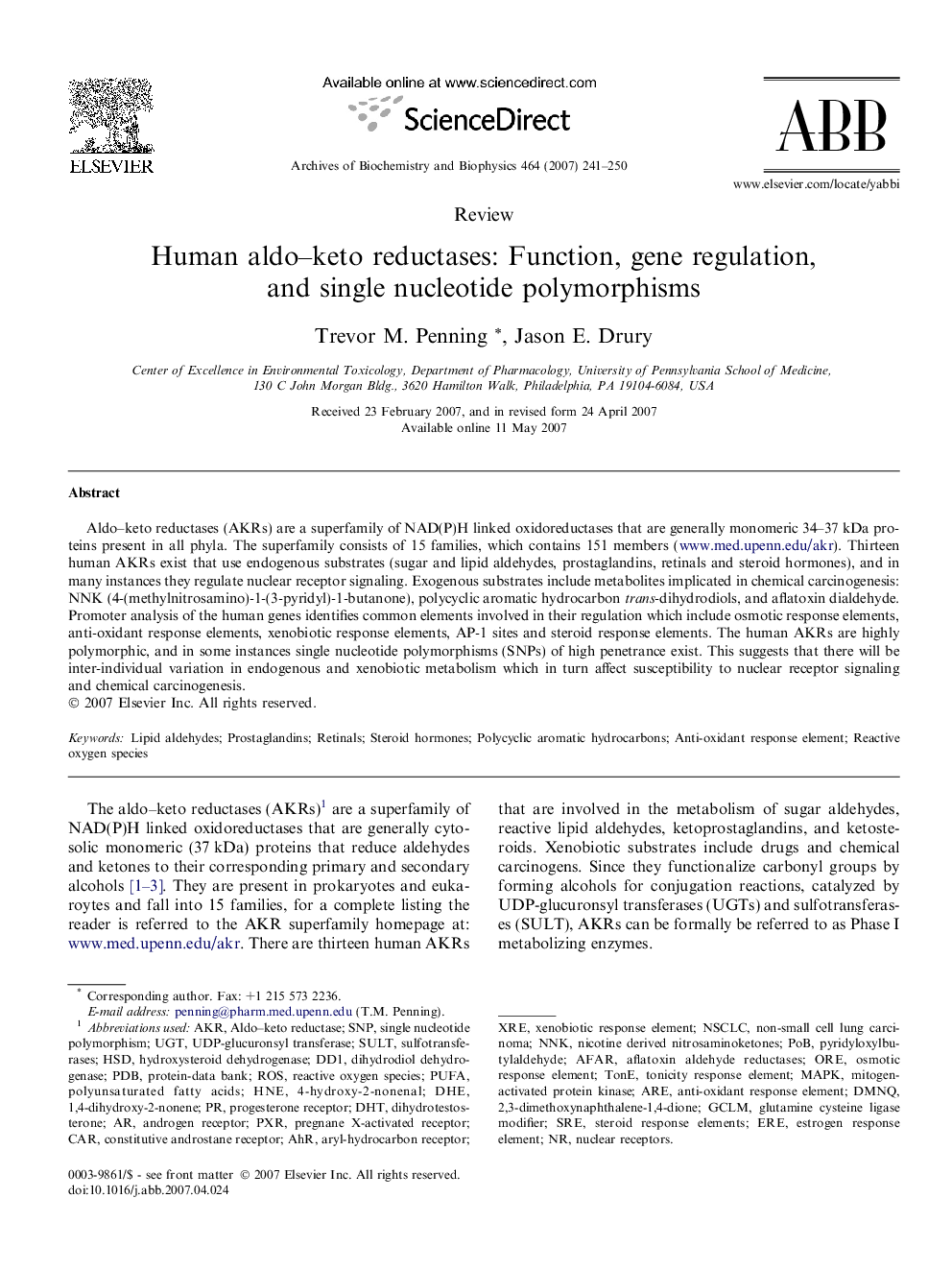| کد مقاله | کد نشریه | سال انتشار | مقاله انگلیسی | نسخه تمام متن |
|---|---|---|---|---|
| 8292137 | 1536497 | 2007 | 10 صفحه PDF | دانلود رایگان |
عنوان انگلیسی مقاله ISI
Human aldo-keto reductases: Function, gene regulation, and single nucleotide polymorphisms
دانلود مقاله + سفارش ترجمه
دانلود مقاله ISI انگلیسی
رایگان برای ایرانیان
کلمات کلیدی
موضوعات مرتبط
علوم زیستی و بیوفناوری
بیوشیمی، ژنتیک و زیست شناسی مولکولی
زیست شیمی
پیش نمایش صفحه اول مقاله

چکیده انگلیسی
Aldo-keto reductases (AKRs) are a superfamily of NAD(P)H linked oxidoreductases that are generally monomeric 34-37Â kDa proteins present in all phyla. The superfamily consists of 15 families, which contains 151 members (www.med.upenn.edu/akr). Thirteen human AKRs exist that use endogenous substrates (sugar and lipid aldehydes, prostaglandins, retinals and steroid hormones), and in many instances they regulate nuclear receptor signaling. Exogenous substrates include metabolites implicated in chemical carcinogenesis: NNK (4-(methylnitrosamino)-1-(3-pyridyl)-1-butanone), polycyclic aromatic hydrocarbon trans-dihydrodiols, and aflatoxin dialdehyde. Promoter analysis of the human genes identifies common elements involved in their regulation which include osmotic response elements, anti-oxidant response elements, xenobiotic response elements, AP-1 sites and steroid response elements. The human AKRs are highly polymorphic, and in some instances single nucleotide polymorphisms (SNPs) of high penetrance exist. This suggests that there will be inter-individual variation in endogenous and xenobiotic metabolism which in turn affect susceptibility to nuclear receptor signaling and chemical carcinogenesis.
ناشر
Database: Elsevier - ScienceDirect (ساینس دایرکت)
Journal: Archives of Biochemistry and Biophysics - Volume 464, Issue 2, 15 August 2007, Pages 241-250
Journal: Archives of Biochemistry and Biophysics - Volume 464, Issue 2, 15 August 2007, Pages 241-250
نویسندگان
Trevor M. Penning, Jason E. Drury,